What do Black women need to help them graduate university? Ask a Black woman
Students, educators detail barriers Black women face in education
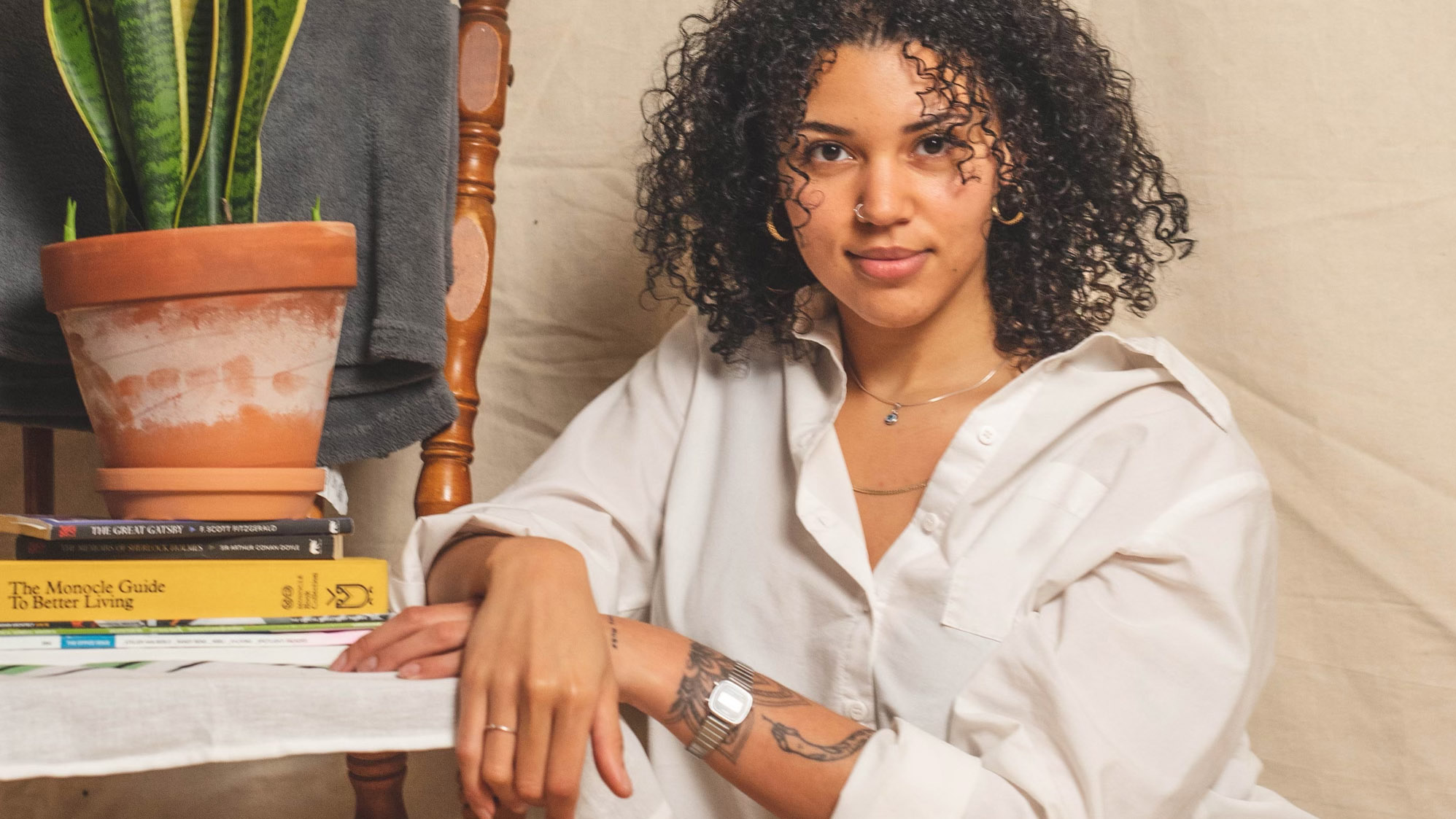
caption
Renée Babin studied criminology at Saint Mary's University.Mariah Pelley-Smith runs her own business, but it was a struggle to get there.
She remembers feeling alone and isolated when she was studying for her bachelor’s degree in marketing in 2014.
“There were moments here and there that made me feel like I was going against the system a bit,” Pelley-Smith said.
At her brand-developing business, Pelley-Smith teaches courses online and manages clients. She says the most unexpected thing about building up an international business was to let go of barriers that, as a Black person, she had internalized.
“I was a woman of colour, doing something newish in the city. It was definitely an interesting experience because I realized, you have to work through all those self-imposed barriers, but also those societal barriers, and then it kind of comes to a point where you can’t really care and you just have to do it.”
Pelley-Smith got her degree from the College of North Atlantic. But Black women in Canada are less likely to hold a bachelor’s degree than women generally, according to data released by Statistics Canada in 2020.
The difference is significant: 26.9 per cent of Black women hold bachelor degrees, compared to 40.8 per cent of all women.
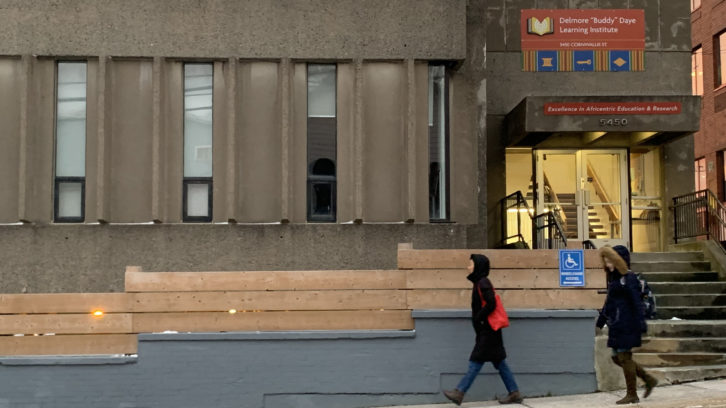
caption
The Delmore “Buddy” Daye Learning Institute, photographed on Dec. 6, 2021That doesn’t surprise Brittany Oakley.
“The post-secondary education journey is so isolating,” said Oakley, a community engagement officer at The Delmore “Buddy” Daye Learning Institute, a research centre on African Nova Scotian communities.
Oakley and Sylvia Parris-Drummond, the institute’s CEO, understand the experience of Black women in the education system.
Parris-Drummond said part of the problem is the expectation that Black children will not perform well in school and that Black children are socialized to not aim as high academically.
“When kids have the sense that you don’t expect them do well, they develop a perception about where they’re going to go successfully or not successfully,” Parris-Drummond said.
“Some people articulate that verbally to them. ‘Why don’t you go on this course instead of that one because you’re likely be able to succeed?’ And it’s that kind of lowered expectation for them. So there’s lots to be said about people’s agency individually, and as a community collective to validate that understanding of success in an academic way.”
The lower percentage of Black women with a bachelor’s degree also affects the number of Black women employed in universities.
In a thesis paper from 2018, Isalean Phillip said Black women are among the least represented of all racial minorities among faculty at Dalhousie and Saint Mary’s universities. At the time, Black women made up about three per cent of all employed faculty.
Olivia Kydd, a Halifax native studying at the Toronto Film School, said representation in school is important to her.
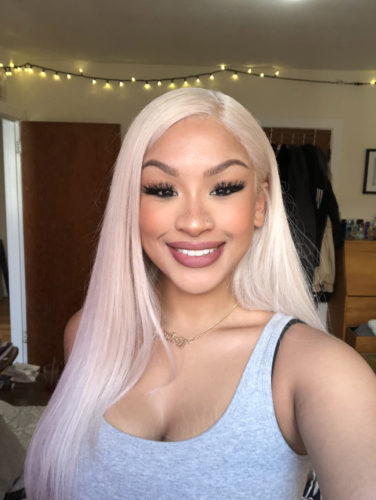
caption
Olivia Kydd is currently a film student at Toronto Film School.“I’ve had a few teachers who are Black women, you know, they really showed me the way,” she said. “It was different from learning from a white teacher. But there still could be more.”
Saint Mary’s University student Esther Kisembo said the need for representation has affected her too.
“I feel like in classes, when it comes to professors and stuff, it’s all white professors, and I feel like some courses you just need a Black professor,” Kisembo said.
Renée Babin had the same experience when she was earning her degree at Saint Mary’s.
“I was probably the only one, or one of two people of colour in the class, especially not Black women,” Babin said. “And then the staff, nobody looks like you.”
For Babin, mentorship is key.
“Getting people interested at a young age and just expressing that there are options through university and really making the connections to the schools when youth are still in high school is super important,” she said.
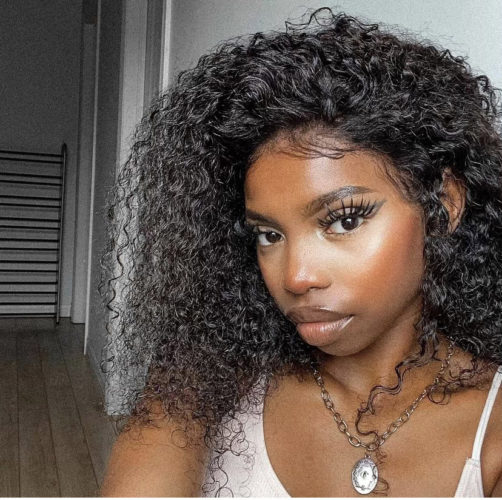
caption
Esther Kisembo is a student at Saint Mary’s University.Parris-Drummond said focusing on mentorship, and having that start at a young age can help address the discrepancies in post-secondary education.
“Role models, you know, formal, informal kind of mentoring is very important, and you know the earlier we can start any of those things, the better,” she said.
Parris-Drummond said that mentorship can help prepare youth for institutional inequalities.
“Knowing that there’s barriers that you’re going to encounter — structural, systemic, anti-Black racism barriers — it’s useful to know about how do you respond and work against those,” Parris-Drummond said. “If you’re going to encounter it, why don’t we skill you up to deal with it, right?”
Pelley-Smith said she still encounters these barriers today, but they do not affect her the same way because she has outgrown them.
“Based on how you grew up, and even now when people know who I am, I still have these moments. When they hear my name or when I first get on a Zoom call, I can see they wouldn’t expect a coloured woman to be the one they’re paying thousands of dollars to build their brand. There is an initial shock factor.”
Pelley-Smith sees progress when it comes to the educational structure for Black Canadian women. She said she has seen first-hand various programs designed for the inclusion of Black women, though they are not all effective.
“I’ve been a part of different business-building programs that were made for Black women,” Pelley-Smith said. “There are definitely things being done and there’s a lot more money going into programs, so there definitely is a lot of changes and funding happening.”
She questions the motivation behind some programs.
“I feel it’s kind of like, they have to support partly to look good publicly. And some people on the inside do have the heart to want to actually support Black women, but I would say it’s also a lot of politics. So, in short, yes, they’re helping, but it might not always necessarily be for all the right reasons,” Pelley-Smith said.
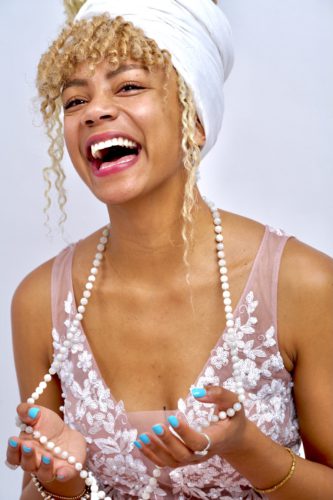
caption
Mariah Pelley-Smith photographed on Oct. 24, 2021.Brittany Oakley said avoiding “internalized barriers” in Black children is about enabling communication within the Black community and with Black educators and their students.
“I think it’s important for our young Black women to see their community leaders be accessible to them, and to really see themselves in their leaders,” Oakley said.
“It’s about simple communication. It doesn’t have to be, you know, strictly a conversation about post-secondary education, or reasons why education is important. But it’s important to really truly see people and see what they’re modelling, and to know their story. Meet them where they are.”
About the author

Abel Rangel
Abel Rangel is a screenwriter and journalist working and living in Halifax, N.S. He earned a master’s degree in transgender studies at New...

Avery Stewart
Avery Stewart is a journalist in Halifax. She has a background in English literature and philosophy.
